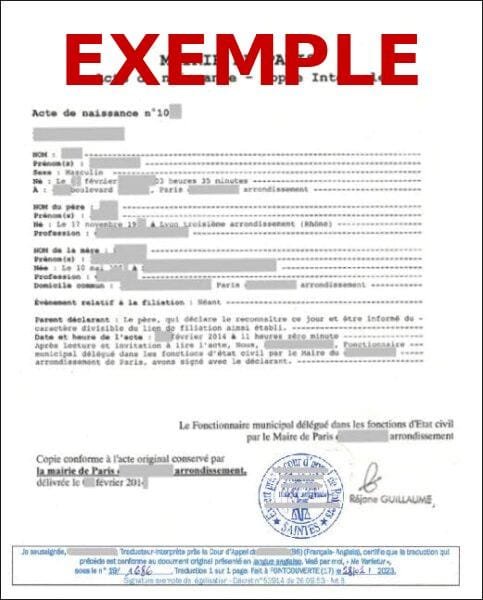Bernie
"Fast, friendly and efficient. They were able to get back to me in a very short time on December 31st itself."
Manel Harakati
"I am very satisfied Very fast, very efficient, contactable, bravo !!!! 🙏🏽🙏🏽🙏🏽🙏🏽 "
Raphael Colsenet
"Service as expected and reasonable price."
Vezo Benvinda
"I am very satisfied with the quality of the work and the speed with which the translation was delivered, the translation was sent to me two days before the date..."
ABDERRAHIM
"Respect for commitments and deadlines with a secure follow-up of your request..."
ALICIA P.
"Great! Very easy and smooth document submission, clear and straightforward pricing. Very quick dispatch of the document. I recommend and will use them again if necessary."
MLS
"The customer service is exceptional. Even on Sundays on Whats App, it's impressive. The translation was done accurately and quickly. My second order has just been sent :)."
MINA
"Very efficient, 1 slightest concern or question, we get an immediate response, reachable which is reassuring... Thank you for your attention, for the work you do👍 "
Florence Etrillard
"Fast, efficient and above all attentive whenever we have a question to ask Thank you "
Koriche
" ... They didn't hesitate for a second to send me another piece of mail, at my request. So I highly recommend 💪 "
Margarida Joao Miranda
"It's a very serious company, very professional, the processing and delivery times are well respected. The translation is of good quality. I recommend "
M.S.
"Efficiency, speed, quality. A quality welcome that takes your situation into account. Efficient, high-quality translation with notes to avoid ambiguities. Translation obtained in a few hours. Thank you"

